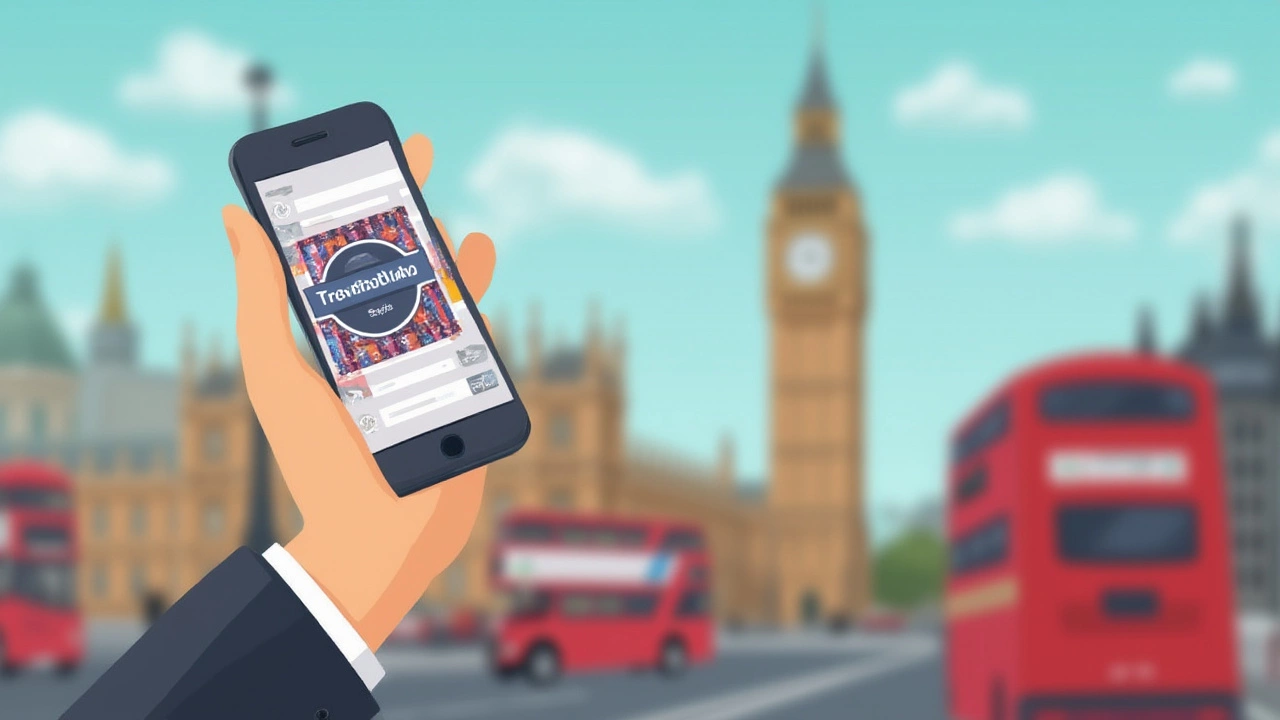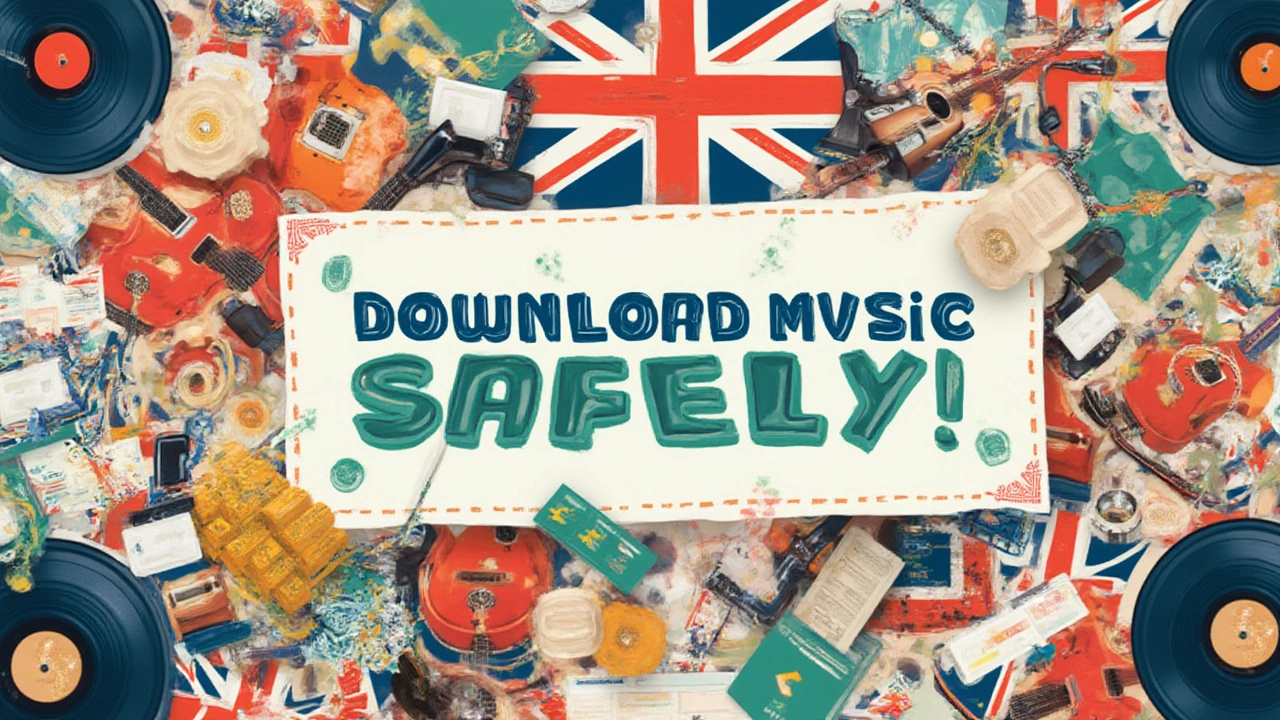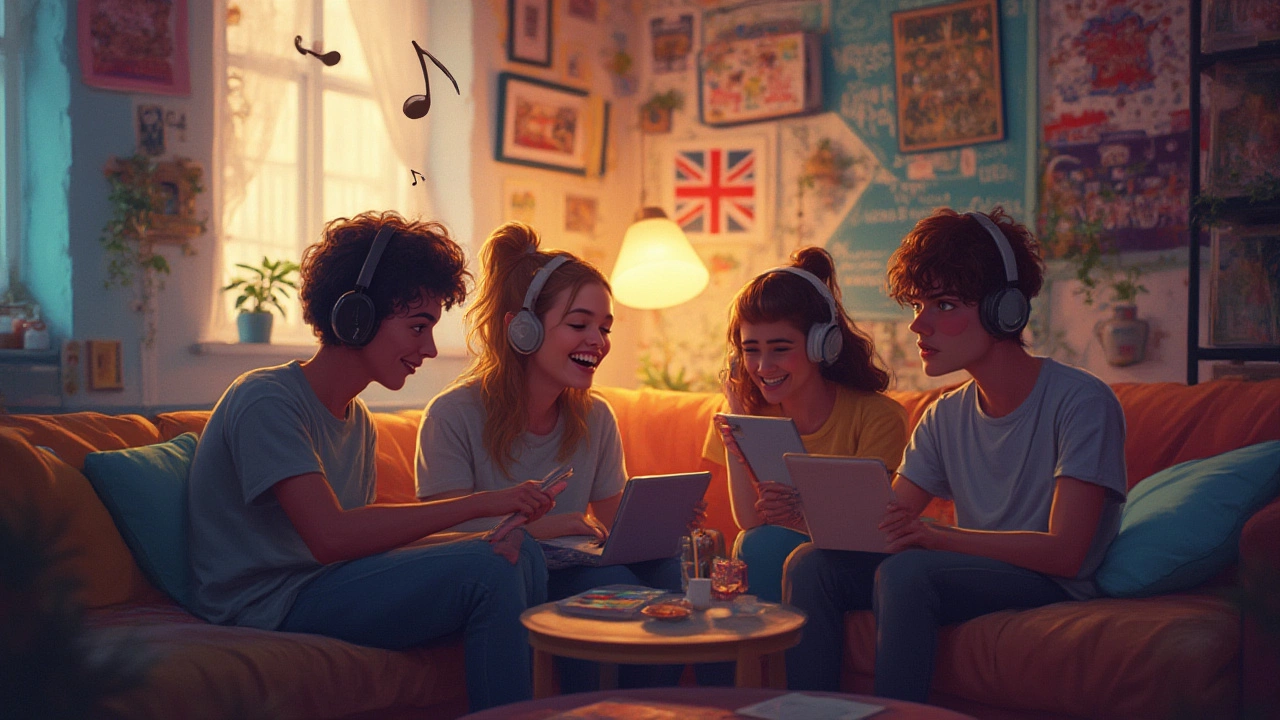Every day, millions of songs get streamed, shared, and yes—downloaded, but not everyone pays for their playlists. The thrill of discovering a hidden track, the search for your favorite banger without a price tag, or the simple nostalgia of owning your MP3s—there's still something about grabbing music for free. But before you set off to fill your hard drive, there's a double-edged question: Is it really free and safe to download music these days? Let’s talk about what you really need to know, the good spots to snag tunes, and how to avoid shady traps that might turn a search for free music into a digital disaster.
The Truth About Free Music Downloads
If you want a guilt-free music collection, you can’t just Google "free MP3" and click the first sketchy link. Back in the early 2000s, services like LimeWire and Napster basically crashed the music industry party—but they also flooded computers with viruses. In 2025, the vibe is different. Copyright rules tightened, and artists want their share, but there are still honest, legal places where music is free. Plenty of artists and record labels love sharing tracks as a way to build buzz. There are official sites and curated platforms that won’t hit you with malware or lawsuits.
You can break music downloading down into three big piles: public domain, creative commons, and promotional releases. Public domain songs are olds—think classical or early jazz—where copyright’s expired, so anyone can enjoy, use, or remix. Creative commons means artists actively allow free downloads, sometimes even tweaks or remixes (just check the specific use rules). The last type is promo stuff: new artists or even big bands posting singles to lure you in for concerts or merch. Even major platforms occasionally give away high-profile tracks as part of a promo. Think of it as musical free samples at the grocery store: legit and intended to tempt.
Here’s an interesting data nugget: According to a 2024 survey by the Digital Media Association, 68% of listeners who download free tracks eventually pay for music in some form. So, free and legal are friends—not enemies of the music business. But sorting the good from the sketchy? That’s where you need some inside knowledge.
Top Legit Places to Download Music for Free
Finding the right site is about so much more than typing "free MP3" into your browser. Let’s look at reliable spots you can trust today. Some of them you may know. Others might surprise you.
- SoundCloud – Not every song is free, but plenty are. Look for the "Download" button underneath tracks. Many indie artists want their work shared, and often you get the MP3 direct from the artist. Pro tip: Use the search filter for downloadable tracks only.
- Jamendo – With its catalogue of over 600,000 tracks from independent musicians, everything here is creative commons. You might stumble across your new favorite garage band or ambient chillout producer.
- Free Music Archive (FMA) – A legendary source endorsed by radio stations and music teachers. Curated, high quality, and totally legal. There's everything from obscure electronica to folk to hip-hop. As NPR put it:
"FMA is a treasure chest for music collectors who want something more than the mainstream."
- Bandcamp – Some artists choose “pay what you want,” which includes zero. Many offer entire EPs for free, especially around album launches or holidays. Don’t forget to throw them a tip if you love what they do—it keeps indie music alive.
- Internet Archive’s Audio Archive – Want to hear a 1940s jazz ensemble or whole concerts from The Grateful Dead? The Internet Archive is a mind-blowing repository of public domain and freely-licensed audio.
- Amazon Free Music – Search "free songs" on Amazon Music. Selections change, but there’s always a rotation of different genres—sometimes charting pop singles or rising artists trying to get traction.
- NoiseTrade – Musicians upload albums in exchange for an email address (so they can send you tour dates or news). The downloads are real and the selection is surprisingly deep—indie rock, folk, even jazz quartets.
- DatPiff – The home of mixtapes. If you’re into hip-hop, especially unreleased tracks or exclusive mixes, this is the place. Artists like Chance the Rapper built massive followings through DatPiff drops.
- ReverbNation – Focused on unsigned artists, with a strong community feel. You can sort by genre and most downloaded if you’re tracking what’s trending underground.
- Last.fm – While it’s mostly known for streaming, there’s still a “free music downloads” section with handpicked tracks from artists who want wider exposure.
Remember, “free” means you can listen, but not always remix or use in videos. Always check the specific licensing if you want to do more than personal listening. Want classical music? Musopen is a goldmine for recordings and sheet music, especially if you’re picking up an instrument for the first time.
| Service | Music Types | Licensing | Requires Signup |
|---|---|---|---|
| SoundCloud | All Genres | Artist Choice | Optional |
| Jamendo | All Genres | Creative Commons | Yes |
| Free Music Archive | All Genres | Various (mostly CC) | No |
| Bandcamp | All Genres | Artist Choice | No |
| Internet Archive | Classical, Live, Rare | Public Domain/CC | No |
| Amazon Free Music | Popular, Indie | Amazon Terms | Yes |
| NoiseTrade | Indie, Folk, Rock | Promotional | Yes |
| DatPiff | Hip-Hop, Rap | Mixtape Release | No |

Safety First: Avoiding Fake Free Sites and Malware
The worst part about chasing free music downloads? Dodgy websites that try to scam, infect, or just frustrate the heck out of you. There’s a whole cottage industry built on “free download” bait-and-switch scams. You don’t need to be a computer genius to spot them, but it helps to know a few red flags:
- If a site immediately pops up dozens of ads, or tries to download an .exe file (not an MP3!), back out fast. Music files should basically always be .mp3, .flac, .wav, or .aac formats.
- If the site won’t show you who runs it or give contact info (other than some random email), they’re probably hiding for a reason.
- Beware of "free" apps that ask for weird permissions, like access to your contacts, camera, or messages. That’s rarely needed just to play a song.
- If you land somewhere with aggressive pop-ups or promises of the “latest Kanye for free”—and the album just dropped—run the other way. Hot releases almost never show up on legit free sites the week they launch.
- Look for SSL protection (the lock icon in your browser). Basic, but a lot of scam sites skip this.
- Read reviews from actual people (Reddit is a goldmine for this). If a site’s sketchy, you’ll find out there fast.
You don’t just risk malware by downloading suspicious files. Some sites use sneaky ad trackers or even mine cryptocurrency with your device. Computer security firm Symantec reported in 2023 that over 15% of malware outbreaks started from shady entertainment downloads. So stick with the sites listed above or do a quick scan of any source using VirusTotal.com if you’re unsure.
Creative Commons and Public Domain: Free Music the Right Way
There’s more to the free music world than just picking a track and hitting download. The best thing? Knowing how artists set their own rules with terms like "Creative Commons." This license system lets musicians release songs for free—in some cases, you can remix, use their music in videos, or even play it at events, as long as you give them credit or follow some simple conditions. Creative Commons types include “Attribution” (just credit the artist), “Non-Commercial” (don’t use it in stuff you sell), and “ShareAlike” (if you remix, release yours under the same license).
Famous EDM labels like Monstercat and artists such as Moby have released tracks under Creative Commons. It’s a way to share, collaborate, and build fan communities. If you’re into video editing, podcasting, or need tunes for a school project, looking for these licenses is a must. Grab full albums, not just singles, and you’re set for content that’s 100% above-board.
Public domain is even simpler. If music is old enough (like Beethoven’s symphonies), it’s not owned by anyone. The catch? Newer recordings or performances, even of old works, might still have copyrights, so make sure the download source spells out “public domain recording.” Big digital libraries, like Project Gutenberg and the Internet Archive, are filled with true public domain classics—and yes, more than a few weird gems from the early days of recorded sound.
For the curious, here are some examples of what you might do with Creative Commons or public domain music:
- Add background tracks to your own YouTube or TikTok videos.
- Create remixes or mashups and share them online.
- Use songs during an event slideshow or podcast intro without worrying about takedowns.
But remember, artists who share this way usually love interaction. Drop them a thank you in the comments, or better yet, share their profile with friends.

Tips for Building the Perfect Free Music Collection
Finding great music for free isn’t just about stockpiling tracks—it’s about discovering artists, building a vibe, and keeping your digital music stash safe and organized. Here are some things I swear by:
- Try new genres. Use free download sites to step outside your usual playlist. Whether it’s Icelandic post-rock or Chicago footwork, you never know what’ll stick.
- Sort and tag your downloads. Free music doesn’t always come with the right metadata (song titles, album names, covers). Free tools like MusicBrainz Picard can fix this, making your collection easier to browse and pretty to look at on music players.
- Back up. Yes, even your free music. Put it on an external drive, cloud storage, or even an old iPod. Trust me, you’ll thank yourself the first time your laptop crashes. In 2022, a study by Cloudwards showed almost 40% of people lost a chunk of their personal digital media in a year—don’t be one of them.
- Look for free music newsletters or blogs. Sites like Indie Shuffle or Brooklyn Vegan highlight new, legal downloads every week. Sign up and never miss a beat.
- Support artists when you can. Download for free, then maybe buy a t-shirt, ticket, or drop a tip if you love someone’s work. A little goes a long way—streaming pays most artists pennies.
- Stay on top of releases. Many artists and labels debut free tracks first on their own Instagram, TikTok, or email newsletter. Keep an eye out, especially around holidays and special events.
And never underestimate the joy of sharing. Pass great tracks on to friends. Music discovery is a group sport—half the fun is impressing someone with that perfect find.

